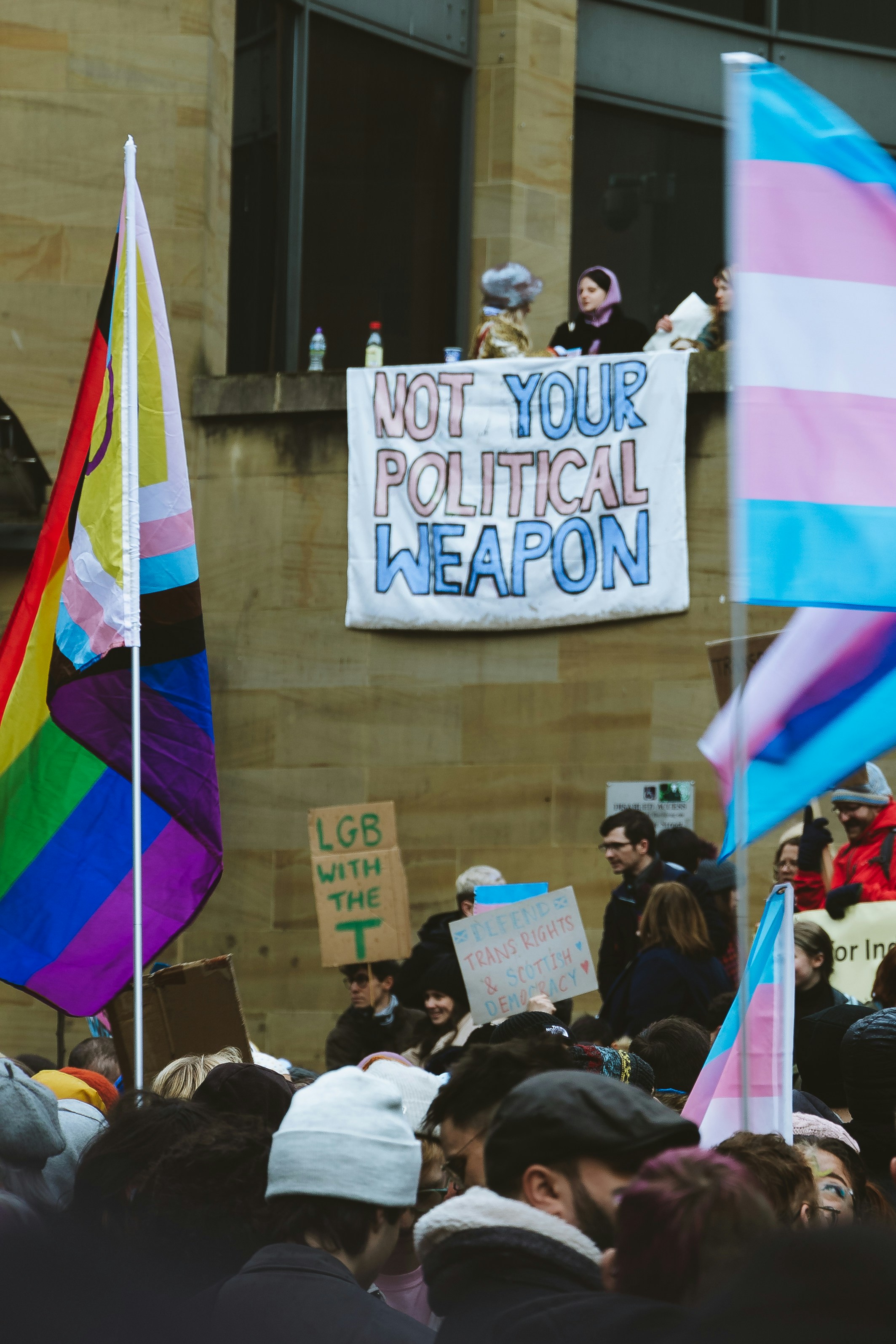Budapest Pride 2023: A Historic March for Rights and Resistance
Context and Courage: Defying a Government Ban
On June 28, 2023, Budapest witnessed a historic Pride March, an embodiment of courage and solidarity that took place amid significant political tension. Prime Minister Viktor Orbán’s government had imposed a controversial ban on such gatherings, aimed at restricting the visibility and rights of the LGBTQ+ community. In the face of this suppression, thousands of individuals, including LGBTQ+ activists, allies, and advocates, took to the streets, making a resounding statement against authority.
This event served not only as a colorful celebration of identity but also as a powerful demonstration of resistance to oppressive laws and societal discrimination.
The Broader Political Climate
The ban posed by the Prime Minister was intended to diminish the voice and presence of LGBTQ+ individuals within Hungarian society, reflecting broader trends of increasing conservatism and intolerance in the region. However, the remarkable turnout at the Pride March illustrated that the spirit of unity among individuals who champion equality remains unbroken.
Participants waved rainbow flags and held signs conveying messages of love, acceptance, and resistance, highlighting the determination to push back against any form of marginalization. This gathering transcended mere festivity; it became a pivotal moment in Hungary’s ongoing struggle for LGBTQ+ rights.
Raising Global Awareness
By confronting the government’s policy in such a public manner, the Pride March represented not only a rallying point for local activists but also a signal to the international community about the challenges faced by LGBTQ+ individuals in Hungary. The event reaffirmed the commitment of the LGBTQ+ community and its allies to advocate for equality, dignity, and human rights.
The significance of this Pride March ultimately lies in its ability to unite voices across different spectrums, reinforcing the message that love and acceptance must prevail in the face of adversity.
Record Turnout: A Historic Milestone
Unprecedented Participation
The recent Pride March in Budapest witnessed an unprecedented turnout, marking a pivotal moment in Hungary’s LGBTQ+ rights movement. Estimates of participation ranged remarkably from 180,000 to 300,000 attendees, showcasing a significant escalation in engagement and public support for the community.
This historic turnout not only surpassed previous records but also symbolized the growing momentum behind advocacy for LGBTQ+ rights within the nation.
More Than Just Numbers
Such a remarkable participation level signifies more than mere numbers; it reflects the community’s resilient spirit and determination. The record-breaking participation during this Pride event serves as a testament to the collective strength and solidarity among advocates, allies, and members of the LGBTQ+ community.
Historically, Pride events have functioned as vital platforms for visibility and acceptance, and this milestone further affirms the importance of such gatherings in Hungary’s sociopolitical landscape.
Political Impact and Social Awakening
Moreover, the impact of this large-scale turnout extends beyond the immediate celebrations. By drawing attention to the ongoing struggles faced by the LGBTQ+ population in Hungary, the record turnout sends a powerful message to lawmakers and society at large.
The enormity of participation signals a demand for tangible changes in policies and societal attitudes, challenging systemic discrimination and advocating for equality.

Navigating Authority: Municipal vs. Central Government
Mayor Karácsony’s Bold Move
Budapest’s historic Pride March stands as a remarkable testament to the dynamics between local governance and central authority in Hungary. Despite a national ban imposed by the central government, Gergely Karácsony, the Mayor of Budapest, took a bold stance. He classified the Pride event as a municipal gathering, thereby asserting the city’s autonomy in the face of national opposition.
Local Autonomy in a Centralized State
By officially recognizing the march, Karácsony not only signaled support for the LGBTQ+ community but also challenged the narrative set forth by the central government. This differentiation between local and central authority raises critical questions about the degree of autonomy municipalities possess in relation to national policies.
Setting a Precedent
The recognition of Pride by the mayor can thus be perceived as an act of defiance against authoritarian measures. As local authorities navigate the complexities of this relationship, their actions will likely influence future civil rights movements and local governance structures in Hungary.
Legal Challenges: Threats and Warnings
Intimidation Through Law
The historic Pride March in Budapest has not been without considerable legal challenges. The Orbán government has adopted a posture that seeks to intimidate organizers and participants, issuing threats that include substantial fines and even prison sentences for those involved in the planning and execution of the event.
Surveillance and Fear
One of the most concerning aspects of the governmental response is the increasingly invasive use of technology to monitor participants. The implementation of facial-recognition technology at public gatherings has raised ethical and privacy concerns. This tactic not only aims to identify attendees but also serves as a psychological weapon to instill fear among those considering attending the march.
Suppressing Dissent
Organizers of the Pride March face significant legal risks, which could result in criminal charges that chill activism and solidarity. The state aims to create an atmosphere of fear, ultimately stifling any challenges to its authority. Despite these risks, participants continue to assert their right to visibility and resistance.
International Solidarity: A Pan-European Movement
Global Voices Join the March
The Pride March in Budapest transcended local boundaries, drawing a significant international presence. More than 70 Members of the European Parliament (MEPs), diplomats, and prominent activists joined the event, marking it as a pivotal moment in the ongoing struggle for equality and acceptance.
Notable Attendees and Their Message
The attendance of figures like Greta Thunberg and others amplified the significance of the event. Their presence reinforced the idea that LGBTQ+ rights are a universal human concern, not limited by geography or politics.
Shared Struggles and Unity
This kind of joint action serves as a reminder that the fight for rights is inherently interconnected. Representatives and activists across Europe demonstrated that solidarity can inspire real change, showing that human rights know no borders.
A Broader Message: Democracy and Human Rights
More Than a Pride March
The Pride March in Budapest has evolved into more than a celebration of identity—it has become a symbol of resistance against authoritarianism. Participants rallied not only for LGBTQ+ rights but for the protection of democratic institutions and civil liberties.
Connecting LGBTQ+ Rights to Broader Freedoms
Activists articulated that their cause intersects with the struggle for democracy, transparency, and justice. When Pride becomes a platform for democratic resistance, it strengthens the case for liberty for all marginalized groups.
Voices from the Ground: Personal Accounts and Reflections
Human Stories Behind the Protest
From young activists like Gábor to older participants reclaiming their identity, the march was filled with emotional and powerful narratives. “We march not just for ourselves, but for those who cannot,” one protester said, echoing a message of unity.
Activists and Amnesty Speak
Amnesty International Hungary described the event as “a beacon of change.” They emphasized the role of grassroots activism in challenging systemic discrimination and amplifying unheard voices.
Transformative Moments
One marcher, Maria, said: “For years, I felt invisible. Today, I feel seen and proud.” Her experience reflects the emotional transformation that public solidarity can create. These personal reflections form the heart of what Pride represents.
The Importance of Defiance: Civil Liberties in Focus
A Stand for Freedom
In the shadow of increasing political control, the Pride March in Budapest became an act of civil disobedience. It highlighted the declining space for civil liberties in Hungary and challenged those in power to reconsider their course.
Prelude to Elections
With the 2026 elections on the horizon, opposition voices are growing stronger. The march could serve as a rallying point for political momentum against Orbán’s Fidesz party, channeling civil frustration into democratic activism.
Global Impact: Reactions and Consequences
European Union Responds
Officials in Brussels and Strasbourg condemned Hungary’s anti-LGBTQ+ stance. Statements from the European Parliament demanded greater accountability and questioned Hungary’s adherence to shared EU values.
Diplomatic and Legal Pressure
The march may lead to renewed pressure within EU forums, financial penalties, and stricter monitoring of Hungary’s human rights commitments. Diplomats around the world praised the peaceful protest and criticized Orbán’s policies.
A Ripple Effect Across Borders
Ultimately, Budapest Pride 2023 wasn’t just a national moment—it became a global symbol of resistance, identity, and the power of unified voices. Its effects are still unfolding across legal, political, and activist spaces in Europe and beyond.



